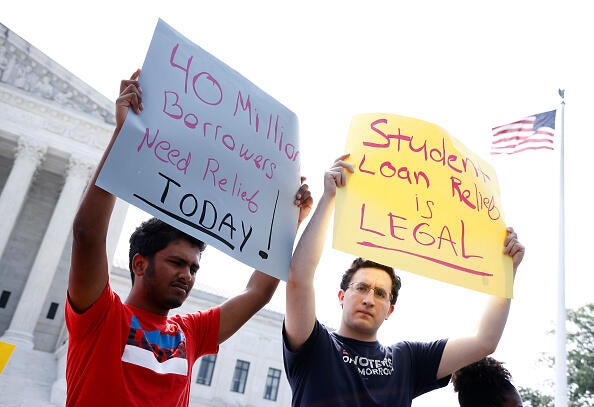In a bold move aimed at overhauling the federal student loan system, House Republicans have introduced a comprehensive proposal that could significantly alter how Americans pay for college — and how much they ultimately owe. The bill, which is part of a broader legislative effort to reduce federal spending and reshape higher education policy, would eliminate several existing loan programs, impose new limits, and hold colleges financially accountable for student loan defaults.
A Major Shake-Up of Repayment Plans
At the heart of the GOP proposal is a dramatic shift in repayment structure. The plan seeks to consolidate all existing income-driven repayment (IDR) programs — including President Biden’s newly introduced Saving on a Valuable Education (SAVE) plan — into a single “Repayment Assistance Plan.” Under this system, borrowers would pay a fixed percentage of their income, but forgiveness would only come after 30 years of consistent payments.
This would replace the current range of IDR options that allow for loan forgiveness after 20 or 25 years, depending on the plan and loan type. Critics argue this change could lead to longer repayment periods and higher interest costs for millions of borrowers.
Caps and Cuts: Changes to Federal Loan Programs
The GOP legislation proposes removing subsidized federal loans for undergraduate students — a program that currently allows interest to be paid by the government while students are in school. It would also end Grad PLUS loans, which graduate students often use to fund advanced degrees.
Instead, borrowing would be capped:
- $50,000 for undergraduate degrees
- $100,000 for graduate degrees
- $150,000 for professional degrees (like law or medicine)
This measure is designed to limit total federal exposure to student debt but may leave students seeking advanced degrees with few affordable financing options outside private lenders.

Pell Grant Eligibility Tightened
Another major element of the proposal involves changes to Pell Grant rules — the need-based aid millions of low-income students rely on.
Currently, students enrolled in 12 credit hours per semester are considered full-time and qualify for full Pell Grant awards. The GOP proposal would raise this threshold to 15 credit hours, making it harder for students who work part-time or manage caregiving responsibilities to access the maximum benefit.
Furthermore, only students enrolled at least half-time (15 credit hours) would be eligible for any Pell Grants, eliminating access for part-time students entirely.
Holding Colleges Financially Accountable
One of the more controversial aspects of the GOP plan is its “skin in the game” provision. This would require colleges and universities to pay back a portion of the loans their students fail to repay, thereby creating a financial incentive for institutions to ensure student success and employability.
Proponents argue this provision would pressure schools to improve graduation rates and better prepare students for the workforce. Detractors warn it may discourage institutions from enrolling students deemed “high risk” or reduce access for marginalized communities.
Elimination of Loan Forgiveness Programs
The proposal also targets the Public Service Loan Forgiveness (PSLF) program — which currently forgives federal loans for borrowers working in public service after 10 years of qualifying payments. If passed, this change would remove a critical financial incentive for teachers, social workers, military personnel, and other public sector professionals.
How It Could Affect You
If enacted, this proposal could have sweeping effects:
- Higher monthly payments for borrowers due to the loss of subsidized loans and longer repayment terms
- Limited access to graduate education due to borrowing caps
- Reduced financial aid for part-time and low-income students
- Fewer paths to loan forgiveness, especially for those in public service
Student advocates and education policy experts warn these changes may exacerbate existing inequalities in access to education and increase long-term financial burdens for many borrowers.

What Happens Next?
The bill is currently under discussion in Congress and has not yet passed. Republicans frame the proposal as a way to rein in federal spending and hold institutions more accountable. However, Democrats and borrower advocacy groups are expected to resist many of the changes, particularly those that eliminate forgiveness options and reduce aid to low-income students. Borrowers are encouraged to stay informed and weigh in during the legislative process.
This article has been carefully fact-checked by our editorial team to ensure accuracy and eliminate any misleading information. We are committed to maintaining the highest standards of integrity in our content.

Outside of work, he enjoys playing chess, following cricket, and writing short stories. His commitment to integrity and in-depth analysis strengthens OTE News’ mission of providing trustworthy journalism.




